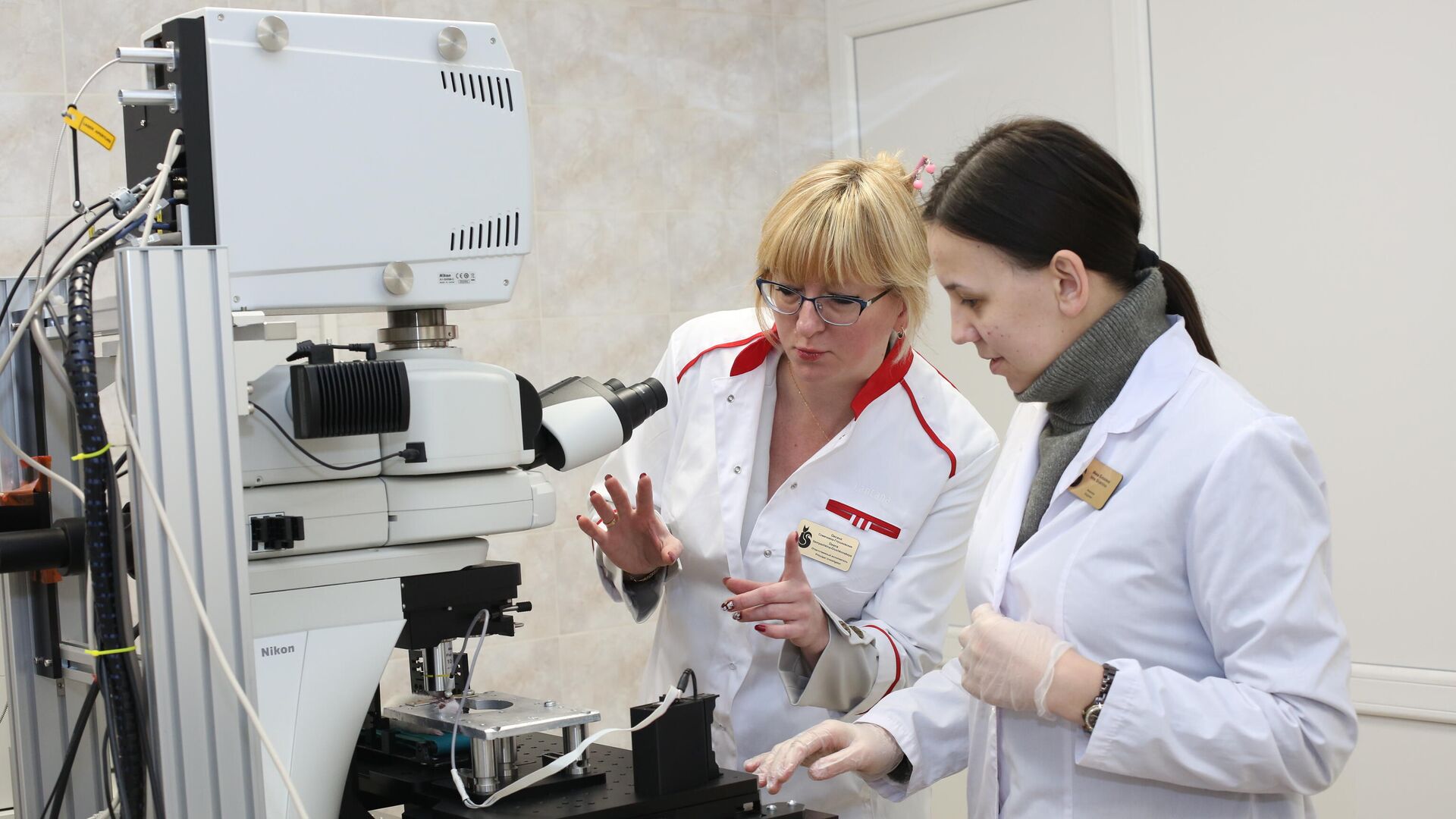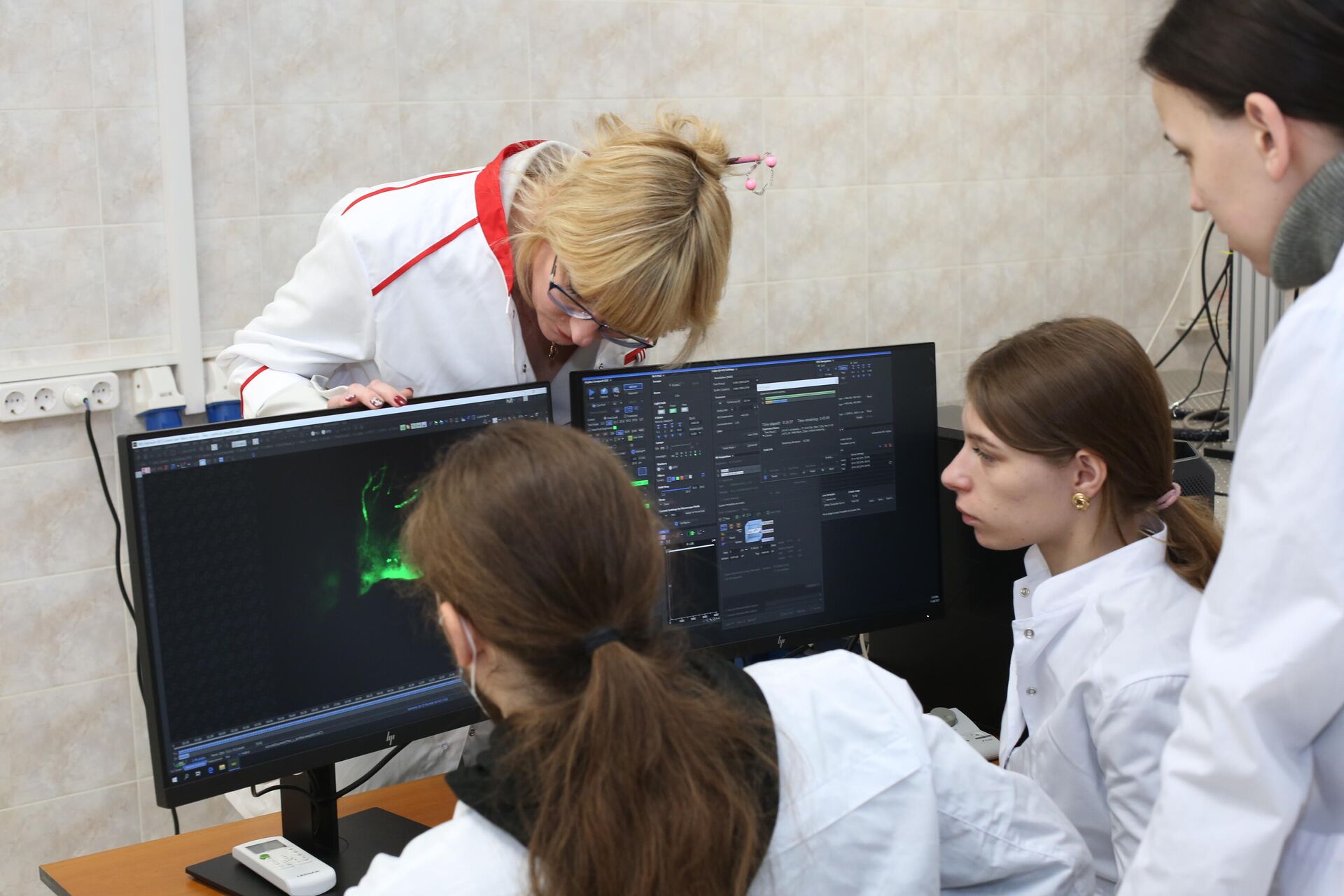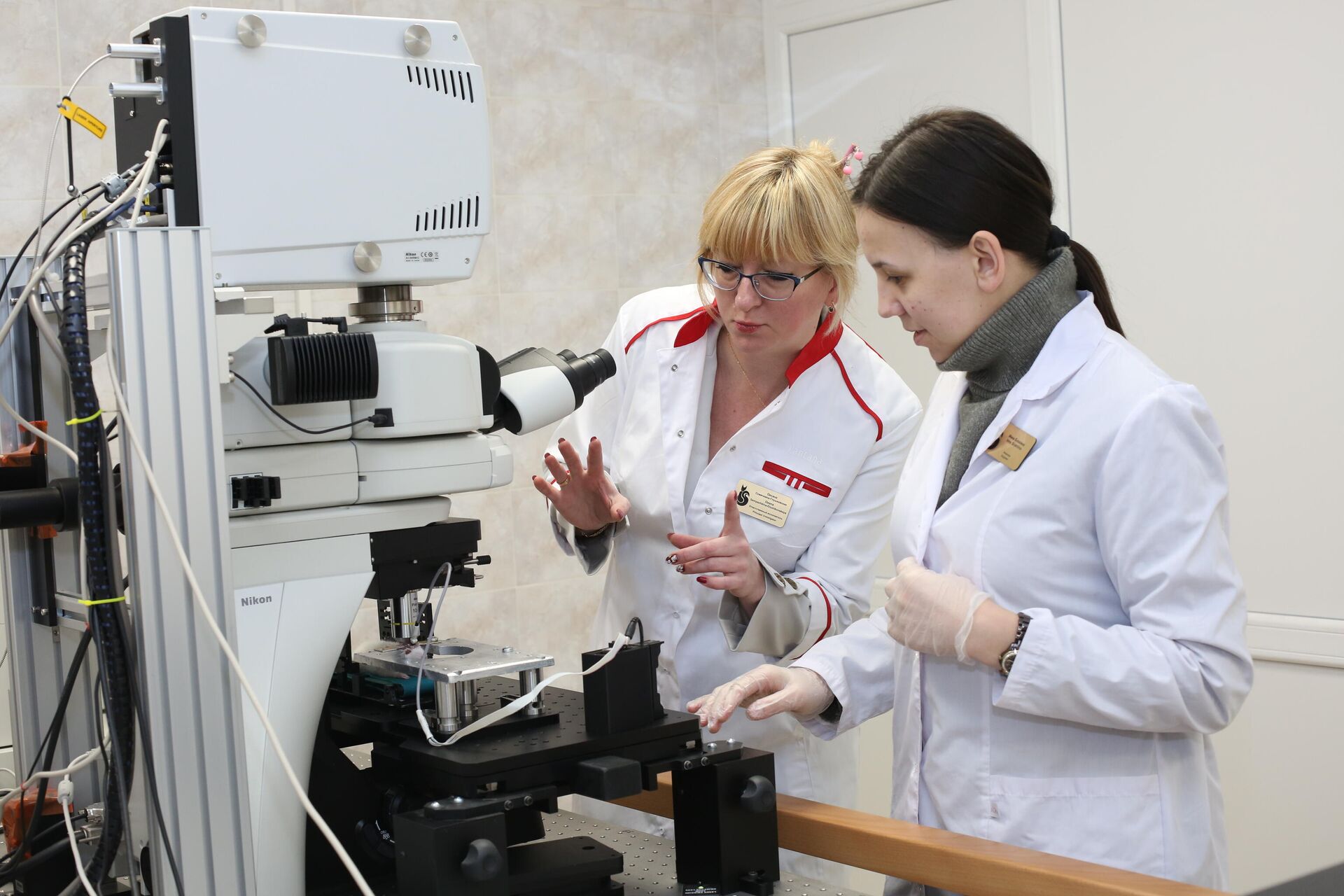https://sputnikglobe.com/20211213/russian-scientists-discover-new-method-to-detect-brain-diseases-1091491115.html
Russian Scientists Discover New Method to Detect Brain Diseases
Russian Scientists Discover New Method to Detect Brain Diseases
Sputnik International
Scientists from Saratov State University (SSU) have proposed unique technology for rapid assessment of the blood-brain barrier (BBB), which protects the brain... 13.12.2021, Sputnik International
2021-12-13T17:19+0000
2021-12-13T17:19+0000
2022-08-06T13:35+0000
russia
saratov state university
science & tech
https://cdn1.img.sputnikglobe.com/img/07e5/0c/0d/1091495686_0:0:3072:1728_1920x0_80_0_0_1db25c9665643210bfc756dbaa5e5813.jpg
According to the scientists, the technology has no equivalent in the world and allows early diagnosis of a number of brain diseases associated with impaired brain-barrier function. The research was published in the journal 'Scientific Reports', part of the 'Nature' series of titles . As SSU explained, this is an efficient, sensitive, cost-effective and affordable BBB assessment technology based on electroencephalography (EEG).The blood-brain barrier protects the brain from bacteria, viruses and toxins. The disruption of the barrier is associated with almost all brain diseases (chronic high blood pressure, diabetes mellitus, epileptic seizures, ischemia etc). According to the scientists, the viral COVID-19 infection is another disease, which is often accompanied by the BBB and that is why it affects the psycho-emotional state of patients.The barrier is an important indicator the diagnosis of brain disorders. However, in practical medicine, there is a limited number of methods to assess the barrier's permeability. Magnetic resonance imaging (MRI) with the use of contrast agents is one method. According to the researchers, the MRI machine requires special care, and is often not available for routine medical practice far from urban centres. Besides, contrast agents have side effects, and for young children, MRI requires the use of anesthesia to ensure immobility during scanning.“Modern MRI is not reliable enough to assess the BBB permeability as it allows visualisation only of heavy brain damage,” the scientists said. Meanwhile, even a small increase in the BBB permeability can be easily missed at an early stage.According to Prof Semyachkina-Glushkovskaya, the introduction of new technology was made possible by studying the processes that take place during deep sleep. “As soon as a person falls into a deep sleep, the brain starts producing cerebrospinal fluid in ventricles. The fluid runs through the special areas of the brain. The liquid moves the metabolites dissolved in it and toxins accumulated in the brain during the day,” she explained.The SSU scientists noted that the results were made possible because of a super multi-photon microscope that was bought for the Smart Sleep Laboratory, which had been created thanks to the Limphasleep government grant. Because of the microscope, it was possible to perform new experiments on simultaneous monitoring of the state of the BBB and EEG. This enabled the EEG to identify the markers of the barrier's permeability through the application of analytical techniques for complex biological signals and machine learning.
Sputnik International
feedback@sputniknews.com
+74956456601
MIA „Rossiya Segodnya“
2021
Sputnik International
feedback@sputniknews.com
+74956456601
MIA „Rossiya Segodnya“
News
en_EN
Sputnik International
feedback@sputniknews.com
+74956456601
MIA „Rossiya Segodnya“
Sputnik International
feedback@sputniknews.com
+74956456601
MIA „Rossiya Segodnya“
saratov state university, science & tech
saratov state university, science & tech
Russian Scientists Discover New Method to Detect Brain Diseases
17:19 GMT 13.12.2021 (Updated: 13:35 GMT 06.08.2022) Scientists from Saratov State University (SSU) have proposed unique technology for rapid assessment of the blood-brain barrier (BBB), which protects the brain from being penetrated by bacteria and viruses.
According to the scientists, the technology has no equivalent in the world and allows early diagnosis of a number of brain diseases associated with impaired brain-barrier function. The research
was published in the journal 'Scientific Reports', part of the 'Nature' series of titles . As SSU explained, this is an efficient, sensitive, cost-effective and affordable BBB assessment technology based on electroencephalography (EEG).
The blood-brain barrier protects the brain from bacteria, viruses and toxins. The disruption of the barrier is associated with almost all brain diseases (chronic high blood pressure, diabetes mellitus, epileptic seizures, ischemia etc). According to the scientists, the viral COVID-19 infection is another disease, which is often accompanied by the BBB and that is why it affects the psycho-emotional state of patients.
“The disruption of the BBB may temporarily occur even in a healthy organism. We found that listening to loud rock music causes a reversible increase in the BBB permeability (an increase in adrenaline causes changes in the tonus of brain vessels) in almost all brain regions”, according to Professor Oksana Semyachkina-Glushkovskaya, head of the Department of Human and Animal Physiology at SSU.
The barrier is an important indicator the diagnosis of brain disorders. However, in practical medicine, there is a limited number of methods to assess the barrier's permeability. Magnetic resonance imaging (MRI) with the use of contrast agents is one method. According to the researchers, the MRI machine requires special care, and is often not available for routine medical practice far from urban centres. Besides, contrast agents have side effects, and for young children, MRI requires the use of anesthesia to ensure immobility during scanning.
“Modern MRI is not reliable enough to assess the BBB permeability as it allows visualisation only of heavy brain damage,” the scientists said. Meanwhile, even a small increase in the BBB permeability can be easily missed at an early stage.
According to Prof Semyachkina-Glushkovskaya, the introduction of new technology was made possible by studying the processes that take place during deep sleep. “As soon as a person falls into a deep sleep, the brain starts producing cerebrospinal fluid in ventricles. The fluid runs through the special areas of the brain. The liquid moves the metabolites dissolved in it and toxins accumulated in the brain during the day,” she explained.
The SSU scientists noted that the results were made possible because of a super multi-photon microscope that was bought for the Smart Sleep Laboratory, which had been created thanks to the Limphasleep government grant. Because of the microscope, it was possible to perform new experiments on simultaneous monitoring of the state of the BBB and EEG. This enabled the EEG to identify the markers of the barrier's permeability through the application of analytical techniques for complex biological signals and machine learning.




